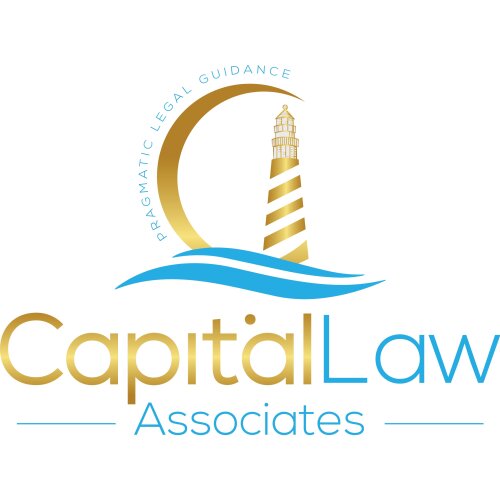Best Legal Document Lawyers in Nassau
Share your needs with us, get contacted by law firms.
Free. Takes 2 min.
List of the best lawyers in Nassau, Bahamas
About Legal Document Law in Nassau, Bahamas
The field of legal documents in Nassau, Bahamas, encompasses the preparation, interpretation, and enforcement of a variety of legal papers essential for both individuals and businesses. These documents range from contracts and deeds to estate planning instruments and corporate filings. The laws governing these documents are designed to ensure clarity, legality, and protection of all parties involved. Legal professionals in Nassau are well-versed in both local legislation and international standards, ensuring compliance and proper execution of legal intents.
Why You May Need a Lawyer
Engaging a lawyer in legal document matters is crucial for several reasons. Common situations include:
- Drafting or reviewing contracts to prevent misunderstandings or disputes.
- Ensuring compliance with the legal requirements for business agreements and commercial transactions.
- Handling estate planning, such as wills and trusts, to secure the distribution of assets according to personal wishes.
- Navigating property transactions, including sales and leases, to protect financial interests.
- Forming or restructuring businesses, where proper documentation is key to operational success.
Local Laws Overview
Legal document law in Nassau, Bahamas, is influenced by both local statutes and common law principles. Key aspects include:
- Contract Law: Contracts must be clear in their terms and mutually agreed upon by the parties involved.
- Real Estate Law: Deeds and leases must be carefully drafted to reflect property rights and obligations.
- Corporate Law: Business documents, such as incorporation papers, must adhere to statutory requirements.
- Wills and Probate: Estate planning documents must comply with Bahamian law to be enforceable upon the creator's death.
Frequently Asked Questions
What is a legal document?
A legal document is any written instrument that records a legally enforceable act, process, or contractual duty, obligation, or right.
Why are legal documents important?
Legal documents provide a formal and legally binding record of agreements and transactions, helping to prevent disputes and facilitate legal processes.
Can I draft my own legal document?
While you can draft your own legal documents, consulting a lawyer ensures that they are legally sound and comply with Bahamian law.
How can legal documents protect my interests?
Properly drafted legal documents provide clarity, outline rights and responsibilities, and offer legal recourse in case of breaches or disputes.
What should I look for in a legal document lawyer?
Seek a lawyer with experience in your specific area of need, a solid reputation, and clear communication skills.
Are electronic signatures valid on legal documents in Nassau?
Yes, electronic signatures are generally valid in the Bahamas, provided they meet certain criteria for authenticity and integrity.
What happens if a legal document is contested?
If contested, the document may be examined in court to determine its validity, with the legal process ensuring fairness and justice.
Can I change my will once it’s drafted?
Yes, wills can be amended or revoked entirely at any time before death, as long as the legal formalities are followed.
How long do legal documents remain valid?
The validity of legal documents can vary; some, like contracts, have specific durations, while others, like deeds, remain effective indefinitely unless legally challenged.
What's the difference between a deed and a contract?
A deed is a document that transfers property rights, whereas a contract is an agreement between parties creating mutual obligations.
Additional Resources
For further guidance, consider reaching out to the following resources:
- The Bahamas Bar Association for referrals and legal advice.
- The Registrar General's Department, handling various legal documents like deeds and corporate records.
- Local law firms in Nassau specializing in legal document law.
Next Steps
If you require legal assistance with a legal document, consider taking the following steps:
- Identify your specific legal needs concerning the document.
- Research and select a qualified lawyer specializing in that area.
- Prepare any relevant information or documentation for your initial consultation to provide the lawyer with a comprehensive overview.
- Engage the lawyer to draft, review, or advise on your legal document, ensuring all legal standards and regulations are met.
Lawzana helps you find the best lawyers and law firms in Nassau through a curated and pre-screened list of qualified legal professionals. Our platform offers rankings and detailed profiles of attorneys and law firms, allowing you to compare based on practice areas, including Legal Document, experience, and client feedback.
Each profile includes a description of the firm's areas of practice, client reviews, team members and partners, year of establishment, spoken languages, office locations, contact information, social media presence, and any published articles or resources. Most firms on our platform speak English and are experienced in both local and international legal matters.
Get a quote from top-rated law firms in Nassau, Bahamas — quickly, securely, and without unnecessary hassle.
Disclaimer:
The information provided on this page is for general informational purposes only and does not constitute legal advice. While we strive to ensure the accuracy and relevance of the content, legal information may change over time, and interpretations of the law can vary. You should always consult with a qualified legal professional for advice specific to your situation.
We disclaim all liability for actions taken or not taken based on the content of this page. If you believe any information is incorrect or outdated, please contact us, and we will review and update it where appropriate.

















